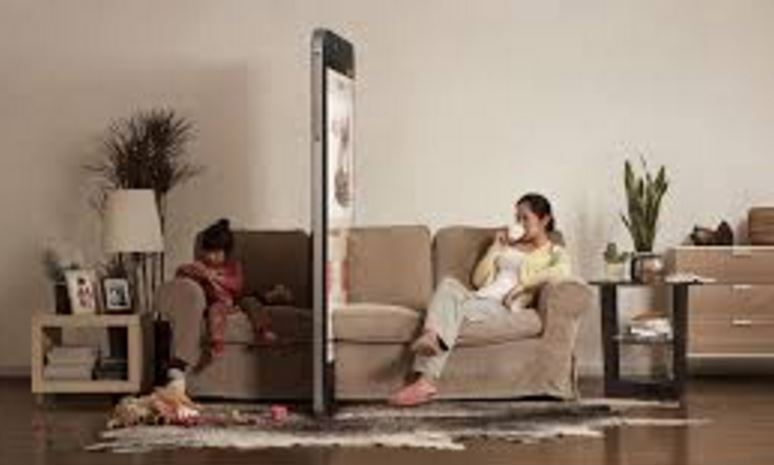|
As smartphones and tablets blur lines between work, home and social lives, parents are grappling to balance it all, a new small study suggests. Parents' use of mobile technology around young children may be causing internal tension, conflicts and negative interactions with their kids, suggests the qualitative study in the Journal of Developmental & Behavioral Pediatrics. It's a challenge both parents and health care providers should tune in to. "Parents are constantly feeling like they are in more than one place at once while parenting. They're still 'at work.' They're keeping up socially. All while trying to cook dinner and attend to their kids," says lead author Jenny Radesky, M.D., a child behavior expert and pediatrician at University of Michigan C.S. Mott Children's Hospital who conducted the study with colleagues from Boston Medical Center. "It's much harder to toggle between mom or dad brain and other aspects of life because the boundaries have all blurred together. We wanted to understand how this was affecting parents emotionally. We found that parents are struggling to balance family time and the desire to be present at home with technology-based expectations like responding to work and other demands." The study involved in-depth interviews with 35 caregivers, which included moms, dads and grandmothers. Participants consistently expressed an internal struggle between multitasking mobile technology use, work and children, information overload and emotional tensions around disrupting family routines, such as meal time. As one mom in a focus group described it, "the whole world is in your lap." Some parents also reported a trickle-down effect. Their emotional response to whatever they were reading on their mobile device -- whether it was a work email or bad news -- sometimes affected how they responded to their children, for example. Parents also described more attention-seeking behaviors from children when they were heavily attentive to their mobile devices, which prompted negative interactions such as snapping at kids.
0 Comments
Your comment will be posted after it is approved.
Leave a Reply. |
Disclaimer: This website is for informational and educational purposes.
Any and all blog content represents a synthesis of empirical information found on the internet, of my own personal opinions, and my professional experiences. Nothing posted reflects or should be considered professional advice. Interaction with me via the blog does not constitute a professional or therapeutic relationship. For professional and customized advice, you should seek the services of a licensed mental healthcare professional. I do not assume liability for any portion or content of material on the blog and accept no liability for damage or injury resulting from your decision to interact with the website. Archives
October 2023
Categories
All
|
